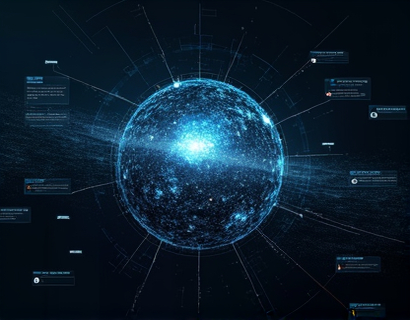Maximize Your Multi-Channel Announcements: A Strategic Guide for Businesses and Individuals
In today's fast-paced digital landscape, effective communication is paramount for businesses and individuals alike. The ability to make announcements across multiple channels not only enhances visibility but also ensures that messages reach the intended audience. This comprehensive guide aims to provide expert strategies for maximizing your multi-channel announcements, streamlining the publishing process, and enhancing message visibility across various platforms.
Understanding Multi-Channel Communication
Multi-channel communication refers to the practice of using various platforms and channels to disseminate information. This can include social media, email, websites, blogs, and more. The goal is to reach a broader audience by leveraging the strengths of each channel. For businesses, this means not only promoting products or services but also engaging with customers, building brand loyalty, and enhancing overall communication strategies.
The Importance of Multi-Channel Announcements
In an era where consumers are bombarded with information, standing out is crucial. Multi-channel announcements allow businesses and individuals to maximize their reach and engagement. Here are some key benefits:
- Increased Visibility: By utilizing multiple channels, your announcements are more likely to be seen by a diverse audience.
- Enhanced Engagement: Different platforms cater to different demographics. Engaging with your audience where they are most active increases interaction.
- Consistency in Messaging: A unified message across channels reinforces brand identity and ensures clarity.
- Improved Analytics: Multi-channel strategies provide valuable insights into audience behavior and preferences, allowing for data-driven decisions.
Crafting Your Announcement Strategy
To effectively maximize your multi-channel announcements, a well-defined strategy is essential. Here are the steps to consider:
1. Define Your Objectives
Before making any announcements, it is crucial to define your objectives. What do you want to achieve? Whether it’s increasing brand awareness, promoting a new product, or informing customers about an event, having clear goals will guide your strategy.
2. Identify Your Target Audience
Understanding your audience is key to effective communication. Identify who your target audience is, their preferences, and the channels they frequent. This will help tailor your announcements to resonate with them.
3. Choose the Right Channels
Not all channels are created equal. Depending on your audience and objectives, select the channels that will be most effective for your announcements. Common channels include:
- Social Media: Platforms like Facebook, Twitter, Instagram, and LinkedIn are excellent for reaching a wide audience.
- Email: Direct communication through email can be highly effective for personalized announcements.
- Websites and Blogs: Your own website or blog can serve as a central hub for announcements, providing detailed information.
- Press Releases: For significant announcements, consider using press releases to reach media outlets.
4. Create Compelling Content
The content of your announcement is critical. It should be clear, concise, and engaging. Use attention-grabbing headlines, and ensure that the message is easy to understand. Incorporate visuals, such as images or videos, to enhance engagement.
5. Schedule Your Announcements
Timing can significantly impact the effectiveness of your announcements. Use analytics to determine when your audience is most active on different channels and schedule your announcements accordingly. This ensures maximum visibility and engagement.
6. Monitor and Adjust
After your announcements are live, monitor their performance. Use analytics tools to track engagement, reach, and audience feedback. Be prepared to adjust your strategy based on what works and what doesn’t.
Best Practices for Multi-Channel Announcements
To ensure your multi-channel announcements are effective, consider the following best practices:
1. Maintain Consistency
Consistency in messaging across all channels is vital. Ensure that your brand voice, tone, and visuals are uniform to reinforce brand identity and avoid confusion.
2. Tailor Content for Each Channel
While consistency is important, it’s also essential to tailor your content for each channel. Different platforms have different audiences and formats. For example, a more formal tone may be appropriate for LinkedIn, while a casual approach may work better on Instagram.
3. Engage with Your Audience
Multi-channel communication is not just about broadcasting messages; it’s also about engaging with your audience. Respond to comments, answer questions, and encourage feedback to foster a sense of community.
4. Use Visuals Wisely
Visual content can significantly enhance engagement. Use images, infographics, and videos to complement your announcements. Ensure that visuals are high-quality and relevant to the message.
5. Leverage User-Generated Content
Encourage your audience to share their experiences related to your announcements. User-generated content can serve as powerful testimonials and enhance credibility.
Tools and Resources for Multi-Channel Announcements
Utilizing the right tools can streamline your multi-channel announcement process. Here are some resources to consider:
- Social Media Management Tools: Platforms like Hootsuite, Buffer, and Sprout Social allow you to schedule and manage posts across multiple social media channels.
- Email Marketing Software: Tools like Mailchimp and Constant Contact can help you create and distribute email announcements effectively.
- Analytics Tools: Google Analytics and social media insights provide valuable data on audience engagement and behavior.
- Content Creation Tools: Canva and Adobe Spark can assist in creating visually appealing graphics and videos for your announcements.
Case Studies: Successful Multi-Channel Announcements
Examining successful case studies can provide valuable insights into effective multi-channel announcement strategies. Here are a few examples:
1. Product Launch by a Tech Company
A leading tech company recently launched a new product using a multi-channel approach. They created a teaser campaign on social media, followed by a detailed email announcement to their subscriber list. The launch event was live-streamed on their website and social media platforms, allowing for real-time engagement. The result was a significant increase in product sales and brand visibility.
2. Non-Profit Fundraising Campaign
A non-profit organization utilized multi-channel announcements to promote a fundraising campaign. They shared compelling stories on social media, sent personalized emails to donors, and published blog posts detailing the impact of donations. The campaign exceeded its fundraising goals, demonstrating the power of a cohesive multi-channel strategy.
3. Event Promotion by a Local Business
A local business promoted an upcoming event through a combination of social media posts, email newsletters, and community flyers. They engaged with their audience by encouraging them to share the event on their own social media channels. The event saw a high turnout, showcasing the effectiveness of multi-channel promotion.
Challenges in Multi-Channel Announcements
While multi-channel announcements offer numerous benefits, they also come with challenges. Here are some common obstacles and how to overcome them:
1. Message Overload
In a crowded digital space, your audience may experience message overload. To combat this, focus on quality over quantity. Ensure that each announcement adds value and is relevant to your audience.
2. Resource Allocation
Managing multiple channels can be resource-intensive. Consider designating a team or individual responsible for overseeing multi-channel announcements to ensure consistency and effectiveness.
3. Keeping Up with Trends
The digital landscape is constantly evolving. Stay informed about the latest trends and best practices in multi-channel communication to remain competitive.
Conclusion
Maximizing your multi-channel announcements is essential for effective communication in today’s digital world. By defining your objectives, understanding your audience, and utilizing the right tools and strategies, you can enhance your message visibility and engagement. Remember to monitor your performance and adjust your approach as needed. With a well-executed multi-channel strategy, you can connect more effectively with your audience and achieve your communication goals.










































